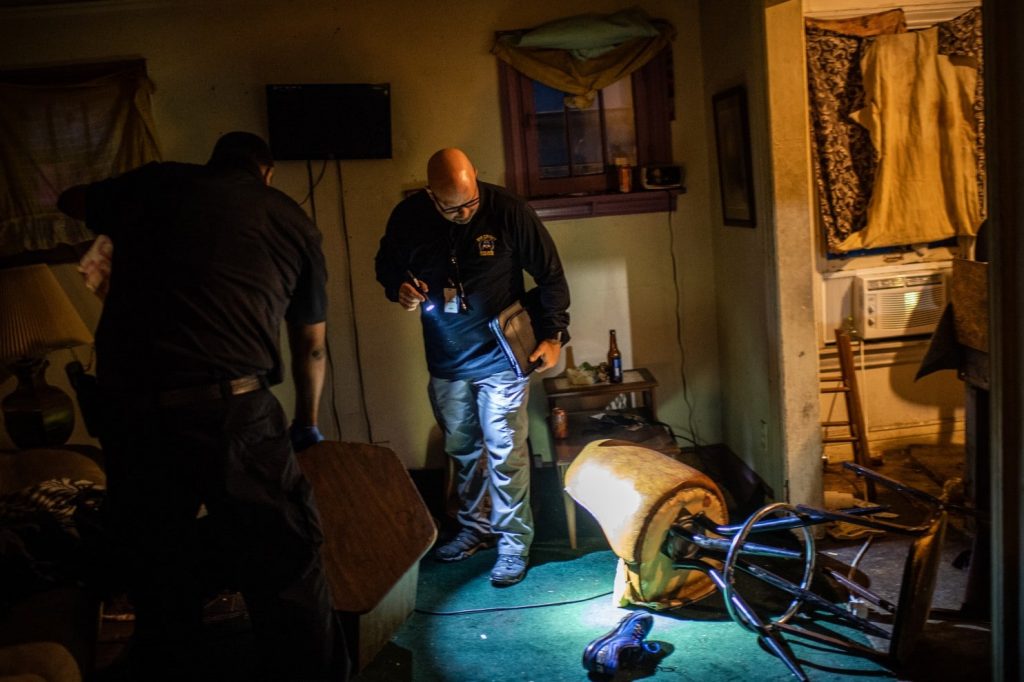Washington Post Investigation ‘Buried Under Bodies’ Looks at Homicides in Detroit
Washington Post investigative reporter Kimbriell Kelly joins Detroit Today with Stephen Henderson.

The Washington Post published a fascinating investigation this month into how caseloads for homicide detectives in major cities correlate with the number of arrests made.
The story is titled, “Buried under bodies: Even with murder rates falling, big-city detectives face daunting caseloads.”
It puts a particular focus on detectives right here in Detroit.
Washington Post investigative reporter Kimbriell Kelly joins Detroit Today with Stephen Henderson to talk about the investigation and the Washington Post’s larger series Murder with Impunity.
Click on the audio player above to hear that conversation.
Here’s an excerpt from the article:
“You have all your investigators available in the daytime to deploy all your resources on these cases instead of taking your small group of people and splitting them up over a 24-hour shift,” said Russell, the Detroit police homicide lieutenant, who has worked under nearly a dozen chiefs in his 23 years with the department.
The police department remains understaffed because of recent retirements and competition with other city departments for limited resources, said Detroit City Council member Scott Benson, who chairs the council’s Public Health and Safety Committee.
“I’d like to give them more resources so that we can get our closure rate above the national average,” Benson said, but “we still have to clean the streets. We’ve got to cut the grass. We’ve got to be able to staff our offices. So, unfortunately, that’s not the only interest to Detroit.”
Detroit’s detectives handled about eight cases each per year, the Post study found.
Detectives with that many cases do not have time to stay in contact with witnesses and the victim’s family, brief supervisors in detail, and meet with the medical examiner, policing experts said.
David Carter, a criminologist at Michigan State University and a former police officer, recommends that each detective handle no more than three cases a year. A smaller workload means a detective is able to respond more quickly to homicide scenes as they are discovered.
“Every piece of evidence or potential piece of evidence deteriorates with time,” Carter said.

